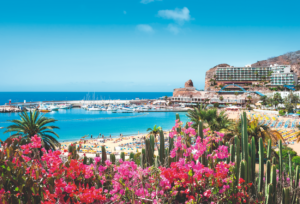Visiting a Turkish market should be on everyone’s bucket list. They’re a festival of colours and smells, selling anything from ladies’ accessories to textiles and mezzes, and whether you’re just window shopping or looking for a one-of-a-kind kilim (rug), it’s bound to be an unforgettable experience.
A famous Turkish market is the Grand Covered Bazaar (Kapali Çarşı) in Istanbul, which is said to date from the 18th century and covers more than 60 streets. Even if you’re staying on the Mediterranean coast in Antalya, you can visit the traditional çarsi/market near Kalekapisi (a tower in the old Roman walls of the city), which is packed with plenty of great finds.
Of course in Turkey there’s the old tradition of haggling, which is a way of arranging a price for your item. Before you haggle though, watch the locals to get an idea of the general cost as many store owners have fixed prices that set an upper boundary.
It’s also important to roughly know your item’s value before you haggle. Be calm and courteous and don’t hesitate to enter into the theatrics of bartering: laugh at ridiculously high prices, and if there are two of you, pretend that your partner holds the purse strings. However, remember that the vendor also has a family to feed and not everything is negotiable.
On a cautionary note, there are restrictions for the export of antiques of more than 100 years old out of Turkey, so be wary of purchasing older items. If you’re going to Turkey this summer, keep some space in your suitcase for the knick-knacks you’re sure to pick up on the way!
What should you buy in Turkey?
You can expect to find classic souvenirs like joke key chains, fez caps, postcards and pashminas, but aside from the trinkets, here are some weird and wonderful objects that will surely catch your eye, and of course, don’t forget to taste the food.
Leather: Did you know that Turkey is one of the biggest leather producers in the world? Traditional Turkish leather handicrafts are great keepsakes. Yemeni, which are authentic leather shoes made from tanned cattle hide with hard leather heels, and beautifully embroidered leather hand-puppets are just two examples.
Textiles: When you hear the name Turkey, most people think of bright, patterned carpets. Depending on the region where you’re staying, the symbols and figures have different symbolic meanings. You might like to choose an ornate handmade kilim (tapestry-woven rug) to hang on your wall!
Sweets: Be sure to try the pine honey in Marmaris, which has a much stronger taste than honey made with flower pollen. Pack a few boxes of authentic Turkish delight for your family and friends, but we recommend you keep the kestane şekeri (candied chestnuts) all to yourself!
Soap: If you’re visiting Izmir in the Aegean, be sure to buy a piece organic Castile (olive oil) or rose oil soap, which is said to be very moisturising, and those who are adventurous can try the olive oil shampoos, eau de colognes and even desserts (zeyşe) made with olives!






